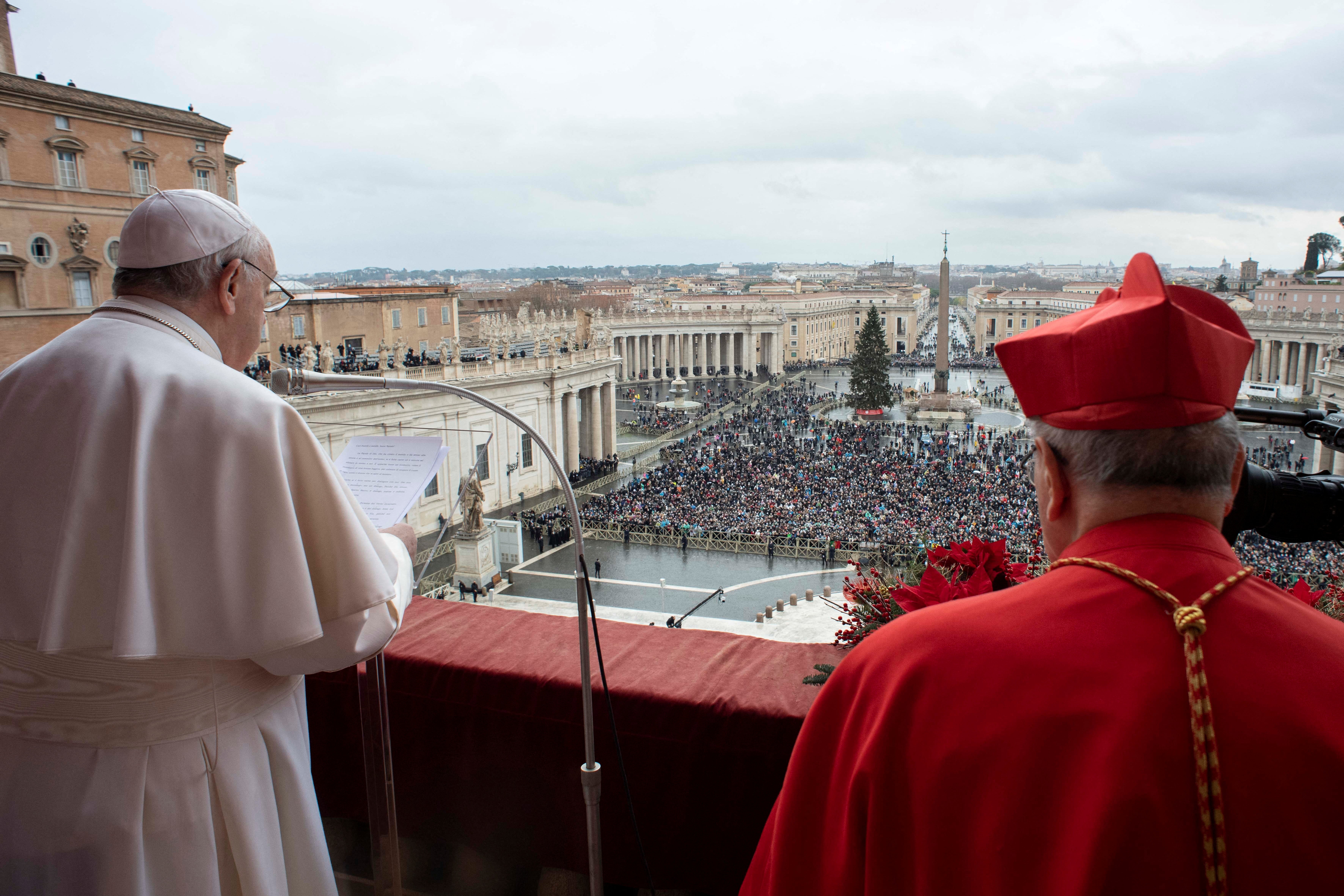World ignoring ‘immense tragedies’, Pope Francis says in Christmas message
Only dialogue can resolve the world’s conflicts, Pope says

Your support helps us to tell the story
From reproductive rights to climate change to Big Tech, The Independent is on the ground when the story is developing. Whether it's investigating the financials of Elon Musk's pro-Trump PAC or producing our latest documentary, 'The A Word', which shines a light on the American women fighting for reproductive rights, we know how important it is to parse out the facts from the messaging.
At such a critical moment in US history, we need reporters on the ground. Your donation allows us to keep sending journalists to speak to both sides of the story.
The Independent is trusted by Americans across the entire political spectrum. And unlike many other quality news outlets, we choose not to lock Americans out of our reporting and analysis with paywalls. We believe quality journalism should be available to everyone, paid for by those who can afford it.
Your support makes all the difference.The Pope said “immense tragedies are now being passed over in silence”, as he urged increased dialogue between people and nations in his annual Christmas message.
Pope Francis warned against a growing polarisation among individuals and world leaders – something he said had been exacerbated by the coronavirus pandemic.
“We continue to witness a great number of conflicts, crises and disagreements,” he said from the central balcony of St Peter’s Basilica in Rome.
“These never seem to end; by now we hardly even notice them. We have become so used to them that immense tragedies are now being passed over in silence; we risk not hearing the cry of pain and distress of so many of our brothers and sisters.”
In the “Urbi et Orbi” – “to the city and the world” – message, Pope Francis urged people to talk to each other rather than isolate themselves.
“Our capacity for social relationships is sorely tired,” he said. “There is a growing tendency to withdraw, to do it all by ourselves, to stop making an effort to encounter others and do things together.”
He continued: “On the international level, too, there is the risk of avoiding dialogue, the risk that this complex crisis will lead to taking shortcuts rather than setting out on the longer paths of dialogue. Yet only those parts can lead to the resolution of conflicts and to lasting benefit for all.”
Pope Francis listed conflicts, tensions and crises in Syria, Yemen, Israel, Palestine, Afghanistan, Ukraine, Sudan and South Sudan, as well as others.
He asked God to “prevent fresh outbreaks of a long-festering conflict” in Ukraine. The build-up of Russian troops on the Ukrainian border has led to fresh fears of an invasion in January.
Pope Francis used the word “dialogue” 11 times in the speech as he spoke before a small crowd in wet and windy conditions.
He asked God to “give serenity and unity to families” and added: “Let us ask him for the strength to be open to dialogue. On this festive day, let us implore him to stir up in the hearts of everyone a yearning for reconciliation and fraternity.”
He also asked people not to be indifferent to the plight of migrants and refugees, as well as political prisoners, and female victims of violence.
Pope Francis warned people that they should not hurt God “by despising the poor with our indifference”.
He added: “That is where Jesus is born: close to them, close to the forgotten ones of the peripheries.
“He comes where human dignity is put to the test. He comes to ennoble the excluded and he first reveals himself to them; not to educated and important people, but to poor working people.”
He also urged leaders to protect the environment for future generations.
Join our commenting forum
Join thought-provoking conversations, follow other Independent readers and see their replies
Comments